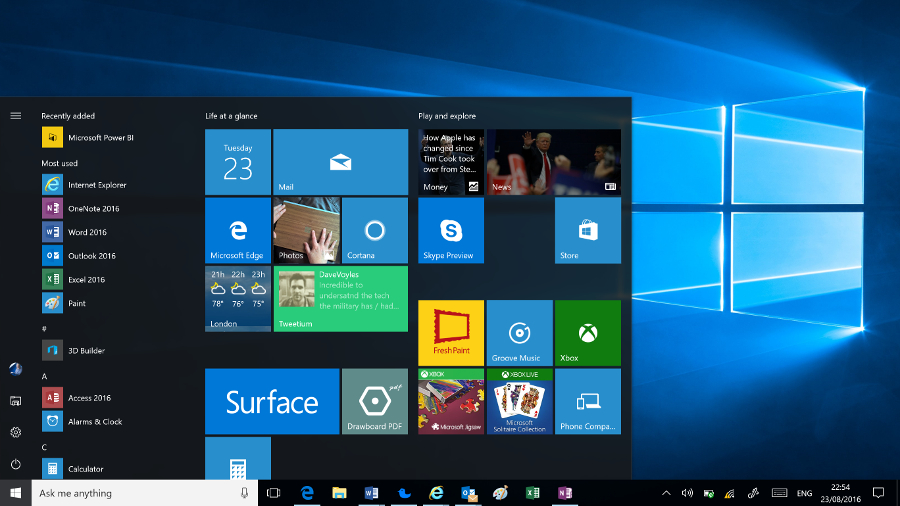Microsoft updates Windows 10 to make your PC crash less
Stability improvements come with the latest preview build.

Microsoft has deployed another preview build of Windows 10 with some important changes including smoothing over the stability and an overhauled photos app.
Preview build 14942 – which has just been released to those testing on the fast ring – splits ‘service hosts’ into separate processes, PCs running with at least 3.5GB of system RAM or more.
Typically critical services on Windows run in the background bundled into groups of services known as hosts. However, with the latest preview of the OS, Microsoft has made the decision to ungroup them.
That’s mainly because the advantage of having the services grouped – namely saving memory – isn’t really relevant anymore (providing you have a machine with a decent amount of memory, hence the 3.5GB stipulation).
And with services separated out, this means that if one process crashes, it won’t take out others that it’s bundled with – and in turn, that means it’s less likely that your PC will crash.
In short, the fewer processes failing, the less likely the system is to bomb out.
Sign up for breaking news, reviews, opinion, top tech deals, and more.

Photos plus
Other big changes for this build include a new Photos app, which has been redesigned to look better and now boasts a horizontal navigation bar to make it easier to get around the program. Also, this app is now available on the Xbox One should you wish to browse your photos on your console in the living room.
Furthermore, touchpads have been tweaked for those using Windows 10 on a laptop, and those with ‘precision touchpads’ – more accurate affairs which enable various extra gestures – will see an improvement in the likes of two-finger tap detection, and better performance when it comes to pinch-to-zoom.
There have also been some fresh adjustments to the interface, including the much requested ability to collapse and hide the app list in the Start menu (an option that Windows Insiders will find under Settings > Personalization > Start). There’s also a new icon for Windows Update.
For the full list of changes, and a few known issues – such as Xbox logins failing – check out the blog post introducing this build.
As ever, with a fast ring build, your chances of encountering glitches are higher, so stability improvements won’t necessarily be particularly obvious at this point – but when the service hosts changes make it to the full version of the OS, we can expect a generally more stable Windows 10.
Darren is a freelancer writing news and features for TechRadar (and occasionally T3) across a broad range of computing topics including CPUs, GPUs, various other hardware, VPNs, antivirus and more. He has written about tech for the best part of three decades, and writes books in his spare time (his debut novel - 'I Know What You Did Last Supper' - was published by Hachette UK in 2013).